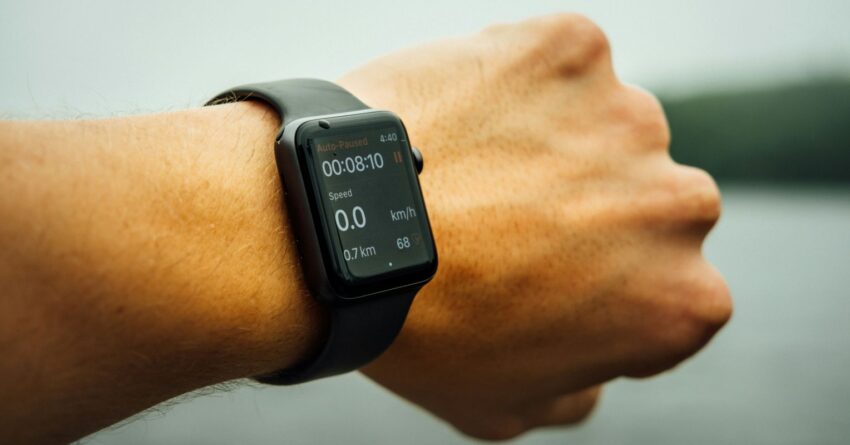Imagine driving your car while focusing only on the gauges in front of you, your eyes fixed on the speedometer, the odometer, the tachometer, and the other various measures that are omnipresent as you drive. Not only would you be severely distracted from the road but you would also risk becoming fixated with these gauges’ measurements, slight changes, and updates.
This can be the case with wearable technologies that monitor our bodies, such as fitness trackers, biosensors, smartwatches, bands, and smart health clothing. Though well-intentioned, these forms of technology can lead us to fixation and an unhealthy obsession with our bodily data, serving to defeat their intended purpose, which is to keep us alert to how our bodies are functioning. Much like the driver who fixates on the vehicle’s data output rather than on the road ahead, these devices can lead us down a slippery slope of losing touch with the present moment and can contribute to anxiety about our health.
A 2021 article in the Cardiovascular Digital Health Journal warns: “although unlimited access to digital health information can motivate some individuals to engage in healthy behaviors, these data may inadvertently contribute to pathologic symptom monitoring and impaired function in others.” The “others” mentioned in this excerpt are those who, like me, tend to resort to checking as a way to soothe feelings of anxiety and worry.
Whether it’s our heart rate, respiration, or sleep quality, wearable technology affords the opportunity to check, re-check, and check again. When, however, we resort to overchecking, we risk our behavior falling into the category of “care-seeking,” which is viewed as a maladaptive response to anxiety regarding our physical health. View it similarly as running to doctor’s offices, emergency rooms, and urgent care clinics anytime we feel an uncomfortable symptom, even when the symptom does not require medical attention. Though we are seeking a soothing of our anxiety, which is normal, the behavior attached to it is unhealthy and potentially damaging. Worse, these types of behaviors distract us from our lives, get in the way of our ability to live in the present, and cause us undue stress about possible future outcomes.
In a 2024 study on the impact of smartwatches on health-related anxiety, researchers found that “some participants mentioned an increase in perceived stress” upon wearing a health-monitoring smartwatch for one week, while cautioning that “the impact of smartwatches on perceived stress and health anxiety is complex and individual-specific.” This caveat means that it is incumbent upon each of us to be thoughtful and realistic with ourselves regarding whether the type of persistent health monitoring made by possible our smart devices will be helpful or detrimental to us.
It is important to recognize that anxiety often causes us to seek definitive answers, our anxious minds telling us that only a concrete answer can eliminate our worry. In the case of our physical health, however, we must also recognize that our “numbers” change through the course of a normal day: Our pulse rate increases and decreases, our sleep quality depends on many external factors, and our respiration may fluctuate depending on what we are doing. While it is obviously helpful to be cognizant of certain aspects of our bodily functions, fixating or obsessing on them can quickly open the door to anxious and unhealthy attention wherein we can become like a distracted driver, paying so much attention to the vehicle’s measurements and readings that we lose focus on the trip itself.
While I am not suggesting that you immediately ditch your health-monitoring devices, I will argue that technology of any kind brings with it complicated but important questions regarding benefits and drawbacks. Look no further than social media for confirmation of this idea. As you consider your device’s effect on your daily life, ask these questions:
- Is my device actually causing me to worry and stress more about my physical health?
- Do I find myself checking and monitoring the data more often than I would like to?
- Is checking my wearable data getting in the way of other parts of my life, such as work, pleasurable activities, or relationships?
- Has it become “automatic” or involuntary for me to look at the data that the device makes available?
Our wearables offer many benefits, but we can always reassess our relationship with them if we find them beginning to distract us from other important areas of our lives.
